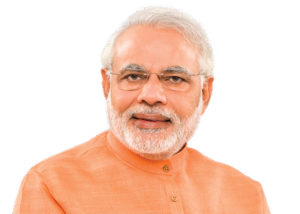The NEP 2020 brings a major change to Indian education

National Education Policy 2020: A Paradigm Shift in Indian Education
The National Education Policy 2020 marks a significant transformation in the Indian education system
 The National Education Policy (NEP) 2020, a landmark reform in the Indian education system, has been a subject of intense discussion and debate among educationists, students, and teaching faculties across the nation. This policy, which replaces the 34-year-old National Policy on Education, 1986, aims to transform the Indian education system into one that is more holistic, flexible, multidisciplinary, and suited to the needs of the 21st century.
The National Education Policy (NEP) 2020, a landmark reform in the Indian education system, has been a subject of intense discussion and debate among educationists, students, and teaching faculties across the nation. This policy, which replaces the 34-year-old National Policy on Education, 1986, aims to transform the Indian education system into one that is more holistic, flexible, multidisciplinary, and suited to the needs of the 21st century.
One of the key highlights of the NEP 2020 is its emphasis on early childhood care and education. The policy recognizes the importance of the formative years in a child’s development and proposes to integrate early childhood education into the formal schooling system. This move is expected to have a significant impact on the overall development of children and their readiness for formal education.
Another significant aspect of the NEP 2020 is its focus on making education more inclusive and accessible. The policy aims to ensure that every child, regardless of their socio-economic background, has access to quality education. To achieve this, the NEP proposes several measures, including the establishment of a National Educational Technology Forum to facilitate the use of technology in education, the setting up of a National Assessment Centre to assess the learning outcomes of students, and the introduction of vocational education from the sixth grade onwards.
The NEP 2020 also seeks to promote a multidisciplinary approach to education by allowing students to choose subjects from various streams, including arts, science, and commerce, based on their interests and aptitudes. This move is expected to encourage students to explore different fields of study and develop a well-rounded understanding of the world.
Furthermore, the NEP 2020 aims to revamp the existing higher education system by promoting autonomy, innovation, and research. The policy proposes to set up a National Research Foundation to fund research projects across disciplines and establish a Higher Education Commission of India to regulate the higher education sector. These measures are expected to enhance the quality of higher education in the country and make India a global hub for innovation and research.
In addition to these key features, the NEP 2020 also addresses several other important issues, such as the use of mother tongue as the medium of instruction in schools, the integration of vocational education into mainstream education, and the promotion of experiential learning.
Overall, the National Education Policy 2020 is a comprehensive and forward-looking reform that has the potential to transform the Indian education system and make it more responsive to the needs of the 21st century. However, its successful implementation will require the collective efforts of all stakeholders, including educationists, students, and teaching faculties. It is imperative that we work together to ensure that the vision of the NEP 2020 is realized and that every child in India has access to quality education.






